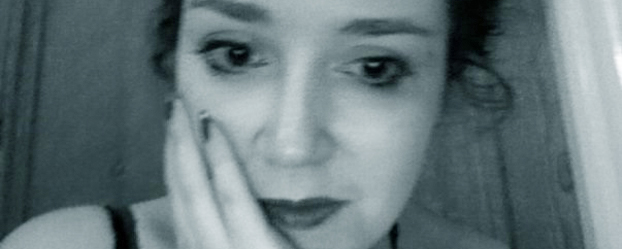This website uses cookies so that we can provide you with the best user experience possible. Cookie information is stored in your browser and performs functions such as recognising you when you return to our website and helping our team to understand which sections of the website you find most interesting and useful.
Caro Meets Theatre Interview
Sarah Chew: Lipstick – A Fairy Tale Of Iran
By Caro Moses | Published on Friday 15 February 2019

Coming up at the Omnibus Theatre as the flagship production of their 96 Festival, a celebration of queerness and theatre, is ‘Lipstick: A Fairy Tale of Iran’, a part theatre, part drag cabaret piece telling a story of “rage, redemption and weaponised whimsy”.
To find out more about the show, and how it came to be, I spoke to the brain behind it, writer Sarah Chew.
CM: Can you start by telling us about the narrative? What story does the play tell?
SC: ‘Lipstick: a fairy tale of Iran’ is a fictional work inspired by time I spent in Tehran in 2010, when the contested election of Mahmoud Ahmadinejhad sparked severe civil unrest. It explores various narratives around the act of seeing, and the responsibilities of being a witness.
CM: And the format? How does the theatrical element fit with the cabaret element?
SC: The piece explores the nature of memories and the fractured experience of PTSD on memory. It is based in linear narrative, but uses cabaret interludes to disrupt and question the story. The show is steeped in musical theatre history, and this device is a homage to shows like Follies and Cabaret, which have used vaudeville, cabaret and other episodic performance forms to interrogate a central narrative.
CM: What themes did you set out to explore when creating it?
SC: I started writing ‘Lipstick’ before Trump and Brexit started drawing their dangerous and disruptive lines across our world – but even then, I was disturbed and angry at the hardening of borders, both nation to nation, and the more intangible borders between apparently incompatible ideologies. I wanted to explore how we can use theatre – and art and communication in general – to blur and liquefy the lines that separate “us” from “them”.
CM: Would you say it’s a political piece?
SC: Yes, absolutely.
But I’m not really sure there is such a thing as a theatre work that is not a political piece.
As Orla, the central character states in the play “To perform is a political act. To tell a story is a political act. To have a body is a political act.”
CM: What inspired you, or gave you the idea for it? Where did it all begin?
SC: In some ways it all began when I was in Tehran, specifically when I was watching a production of ‘King Lear’ so viscerally moving and so electrically relevant to the political and personal tumult that surrounded us, that it almost made me not want to see another production of ‘Lear’ ever again, so I could preserve that memory as clearly as possible.
But in some ways it also began much earlier when, as a very young person, I was introduced to the work of Neil Bartlett and of Lindsay Kemp, and, through them, the Radical Drag movement. In these artists I found a political theatre whose fierce drive was actively enhanced by its glitter, whimsy and shoestring opulence. I find it hard – and unsatisfying – to explore anger without also exploring joy.
CM: How did you come to be staging the show at the Omnibus Theatre?
SC: We did a scratch run at Omnibus last year and they invited us to do a main slot. Thank you, Omnibus.
There are a lot of theatre that offer you development slots, and I am very, very grateful for them.
But the theatres that actually come through and offer you full runs after that are rarer. We should treasure them.
CM: Can you tell us a bit about your career – is this what you always wanted to do? How did you reach the position you’re in now?
SC: As a kid I wanted to be a ballerina who rode dressage horses and baked cakes. What I do now is sort of nothing like that and also weirdly everything like that.
I’m not sure what position I am in now but I am in a position where I get to do shows and I get paid to do them and no-one tells me to stop. This is an amazing position to be in. I guess I got there by taking no notice when people told me to stop. I guess that’s how I make all my work.
CM: What aims and ambitions do you have for the future? What’s coming up next for you after this?
SC: See above. My aim is to take no notice when people tell me to stop. And to support other people to do that. Because, as they will learn, it can be tiring. And also the most rewarding thing you could ever do.
‘Lipstick: A Fairy Tale of Iran’ is on at the Omnibus Theatre from 26 Feb-24 March. See the venue website here for more information and to book.
LINKS: www.omnibus-clapham.org






